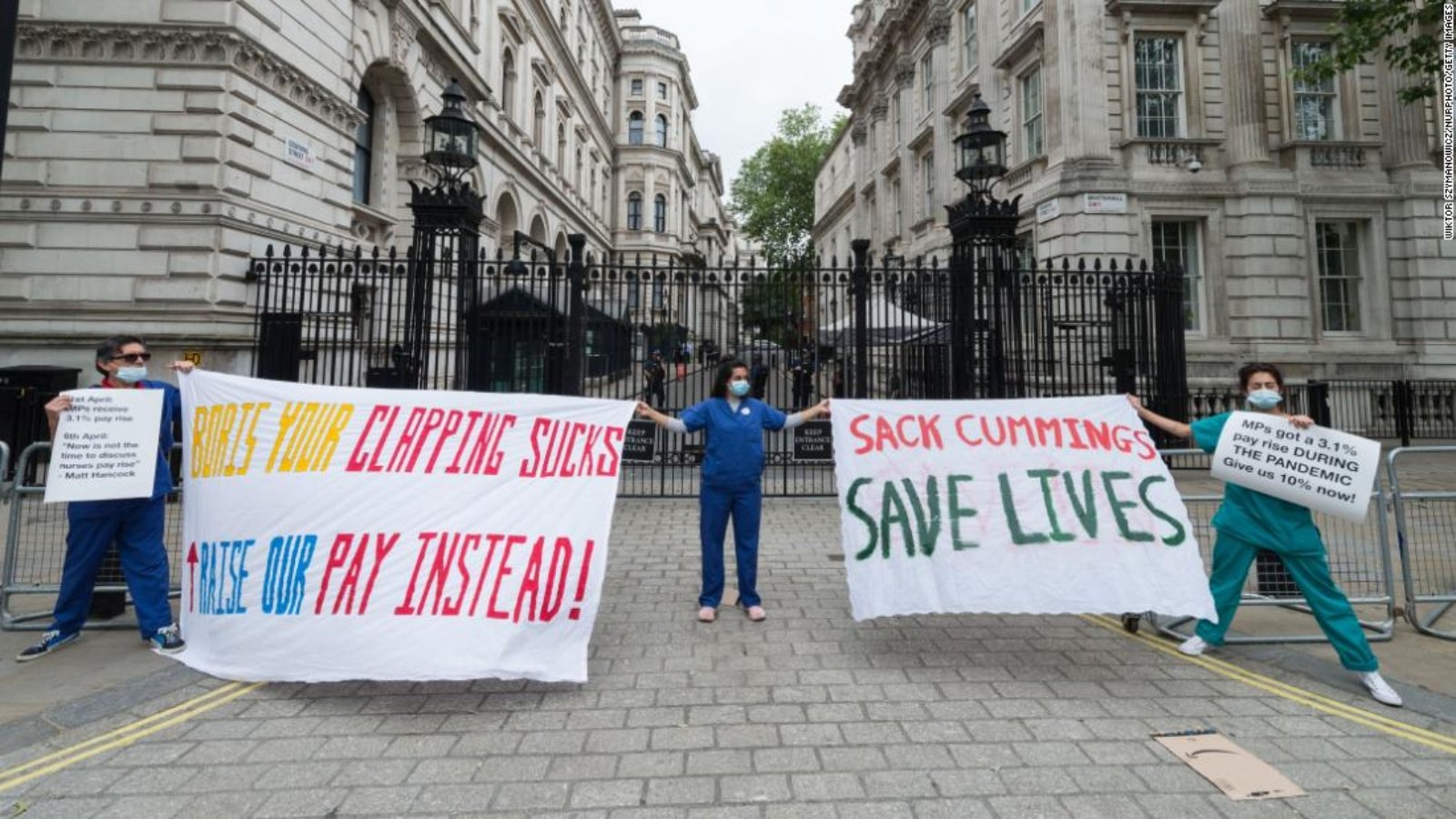Hundreds of thousands of UK public sector workers are getting a pay rise in recognition of their work during the coronavirus pandemic — but nurses have been left empty handed.
The UK government on Tuesday announced that it will give above-inflation pay rises to 900,000 public workers — including teachers, police officers, doctors and dentists, and senior civil servants.
Teachers will get the highest rise, at 3.1 percent, while doctors can expect a 2.8 percent hike, the government said. It added that the two groups will get the biggest pay hikes in recognition of “their efforts on the frontline during the battle against Covid-19.”
In its announcement, the government said nurses and other health care workers had been excluded from the pay rises, because their salaries have already been boosted under a three-year deal agreed in 2018.
Under that agreement, nurses’ pay was set to rise annually for three years until 2021.
That argument did not go down well with nurses and their supporters, reports CNN.
Laura Duffell, a matron at King’s College Hospital in London, said she and her colleagues had been left in shock at Tuesday’s announcement that nurses would not be awarded a rise.
The Royal College of Nursing (RCN), a nurses’ trade union, said that telling nurses to “wait until next year,” when the current pay deal expires, is not acceptable. “Nursing staff deserve a fair pay rise now,” the union said in a statement.
The RCN and other healthcare workers’ unions sent an open letter to UK Prime Minister Boris Johnson and his treasury chief Rishi Sunak on July 3, demanding more money for nurses. The letter said that the deal agreed in 2018 was “a start, after years of pay capping and freezes, but did not restore the value lost over a longer period. More must now be done.”
The RCN has also pointed out that while there have been some pay increases, wages in nursing are still lower in real terms than they were in 2010. That’s because most public sector wages were frozen or capped at 1% increases between 2010 and 2017 as part of the government’s austerity program. The way the 2018 agreement was structured meant that not all nurses got a pay rise in real terms — those on the lowest salaries saw the biggest increases, while more senior nurses got less. ❑
























